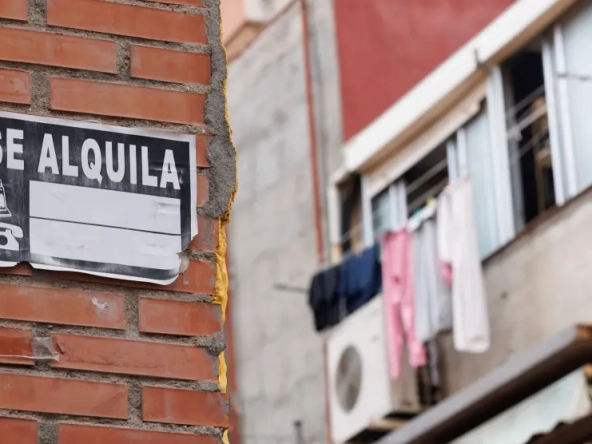The Spanish government has announced the elimination of the Golden Visa programme, a measure that will come into effect in April 2025. This decision represents a significant change in the real estate sector, especially in areas such as Madrid, Malaga and the Costa del Sol, where this programme has been a key driver of foreign investment.
What are ‘Golden Visa’?
Golden Visas are residence permits granted to non-EU citizens in exchange for significant investments in Spain. One of the most common ways of obtaining it has been through the purchase of real estate with a minimum value of 500,000 euros.
This programme was set up in 2013 with the aim of attracting foreign capital in the wake of the financial crisis, facilitating the entry of investors with high purchasing power in strategic sectors such as real estate.
Reasons for removal
The government has argued that the decision responds to the need to combat property speculation and improve access to housing for Spanish citizens. According to official data, the increase in foreign demand has contributed to the rise in housing prices in certain regions, making it more difficult for the local population to access property.
Moreover, several studies have pointed out that, although the Golden Visa has generated investment, its impact on the economy has been less than expected. In countries such as Portugal and Canada, where similar programmes have recently been restricted or eliminated, there has been an attempt to prioritise access to housing for residents over attracting international investors. (El País, 2024) (Expansión, 2024).
Implications for the real estate market
The impact of the elimination of the Golden Visa will be particularly relevant in the luxury segment and in areas with a strong presence of international buyers.
Reduced foreign demand
The measure could reduce the interest of non-EU investors in high-value properties, which would particularly affect regions where foreign investment has been predominant, such as Madrid and the Costa del Sol. According to the General Council of Notaries, 13% of home purchases in Spain in 2023 were made by foreigners, with higher figures in communities such as the Balearic Islands, Valencia and Andalusia. (Notaries of Spain, 2024)
Price adjustment in the luxury sector
In the face of a possible decline in demand, luxury real estate prices could stabilise or even experience a slight downward correction. This would open up opportunities for domestic buyers who previously could not compete with foreign investors in certain areas.
Increased access for local buyers
By reducing buying pressure from non-EU investors, some of the supply of high-end housing may become more accessible to Spanish and European buyers. This could encourage an adjustment in supply and demand within the luxury real estate market.
Regional impact: Madrid, Malaga and the Costa del Sol
Some of the regions most affected by this measure will be those where the Golden Visa has had the greatest impact on the sale and purchase of luxury real estate.
Madrid
As a capital and financial centre, Madrid has been a key destination for international investors, especially from Latin America and Asia. The reduction of non-EU buyers could lead to a more balanced market, in which national and European investors play a more relevant role.
Malaga and Costa del Sol
Costa del Sol, which is highly attractive to British, Nordic and Russian buyers, could experience a slowdown in luxury property purchases. In areas such as Marbella, where more than 30 per cent of property transactions are made by foreigners, the elimination of the Golden Visa could slow the pace of sales and affect the profitability of the luxury sector. (Idealista, 2024)
Considerations for existing investors
For investors who have already obtained a ‘Golden Visa’, the government has assured that the permits granted to date will remain valid and can be renewed under the regulations in force at the time they were granted. However, those planning to access this benefit in the future should consider other alternatives for obtaining residency in Spain, such as entrepreneurial visas or visas for highly qualified professionals.
Conclusion
The end of the Golden Visa represents an important change in the dynamics of the Spanish real estate market, particularly in the luxury segment. Although the measure aims to balance access to housing and avoid speculation, its impact on the sector will depend on how demand evolves and the market’s capacity to adapt to this new scenario.
Sources:
- El País (2024). “El Gobierno eliminará la ‘Golden Visa’ en 2025”. https://elpais.com
- Expansión (2024). “El impacto de la eliminación de la ‘Golden Visa’ en el mercado inmobiliario”. https://expansion.com
- Consejo General del Notariado (2024). “Informe sobre la compraventa de viviendas por extranjeros”. https://www.notariado.org
- Idealista (2024). “Cómo afectará la eliminación de la ‘Golden Visa’ al mercado inmobiliario español”. https://www.idealista.com





